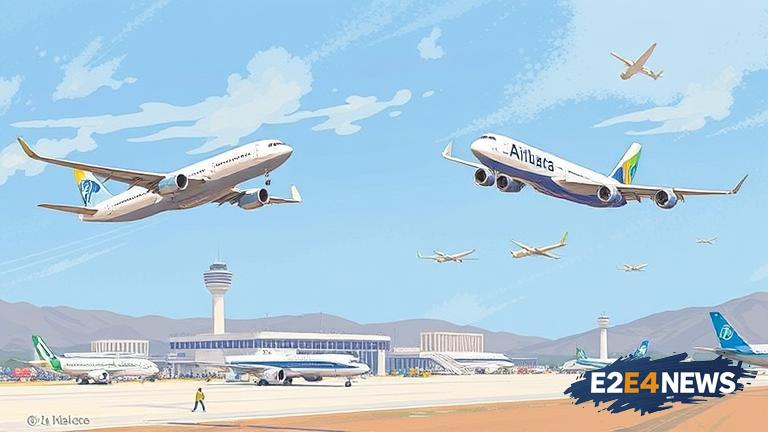The Athens International Airport has become a hub of intense competition among airlines, with each carrier seeking to establish itself as the leading player in the Greek capital’s aviation market. The airport, which serves as a gateway to Greece and the surrounding region, has experienced significant growth in recent years, with passenger traffic increasing by over 10% annually. This surge in demand has attracted the attention of major airlines, which are now engaged in a fierce battle for market share. Aegean Airlines, the country’s flagship carrier, has long been the dominant player at Athens International, but it is facing increasing competition from other European carriers, including Ryanair, EasyJet, and Lufthansa. These airlines are offering competitive fares and expanded route networks, putting pressure on Aegean to adapt and respond. In an effort to maintain its market share, Aegean has announced plans to increase its fleet and expand its route network, with a focus on destinations in Europe and the Middle East. However, the airline faces significant challenges, including rising fuel costs and increased competition from low-cost carriers. Despite these challenges, Aegean remains committed to its hub-and-spoke model, which has been successful in the past, but may need to be adapted to respond to changing market conditions. The airline is also investing in digital technologies, including mobile check-in and baggage tracking, to improve the passenger experience and increase efficiency. Meanwhile, other airlines are also investing in Athens International, with Ryanair announcing plans to establish a new base at the airport and EasyJet expanding its route network to include new destinations in Europe. Lufthansa, which has a significant presence in Greece, is also increasing its flights to Athens, with a focus on business travelers and premium passengers. The competition among airlines is not limited to passenger traffic, with cargo carriers also vying for market share at Athens International. The airport’s cargo facilities are being expanded and upgraded, with a focus on handling increasing volumes of freight and express cargo. The Greek government is also investing in the airport’s infrastructure, with plans to upgrade the terminal building and expand the airport’s capacity to handle more passengers and flights. The development of Athens International Airport is seen as a key priority for the Greek government, which recognizes the importance of aviation to the country’s economy and tourism industry. The airport is a major employer and contributor to the local economy, and its growth and development are expected to have a positive impact on the surrounding region. In addition to its economic benefits, the airport is also an important cultural and social hub, with a wide range of shops, restaurants, and amenities available to passengers. The airport’s location, just a short drive from the city center, makes it an attractive option for tourists and business travelers alike. As the competition among airlines continues to heat up, passengers are likely to benefit from increased choice and competitive fares, making Athens International Airport an even more attractive option for travel to and from Greece. The airport’s future looks bright, with significant investment and expansion planned in the coming years. The Greek government is committed to supporting the airport’s growth and development, recognizing its importance to the country’s economy and tourism industry. As the airline wars continue, one thing is certain – Athens International Airport will remain a major player in the European aviation scene, with a wide range of airlines and routes available to passengers.
